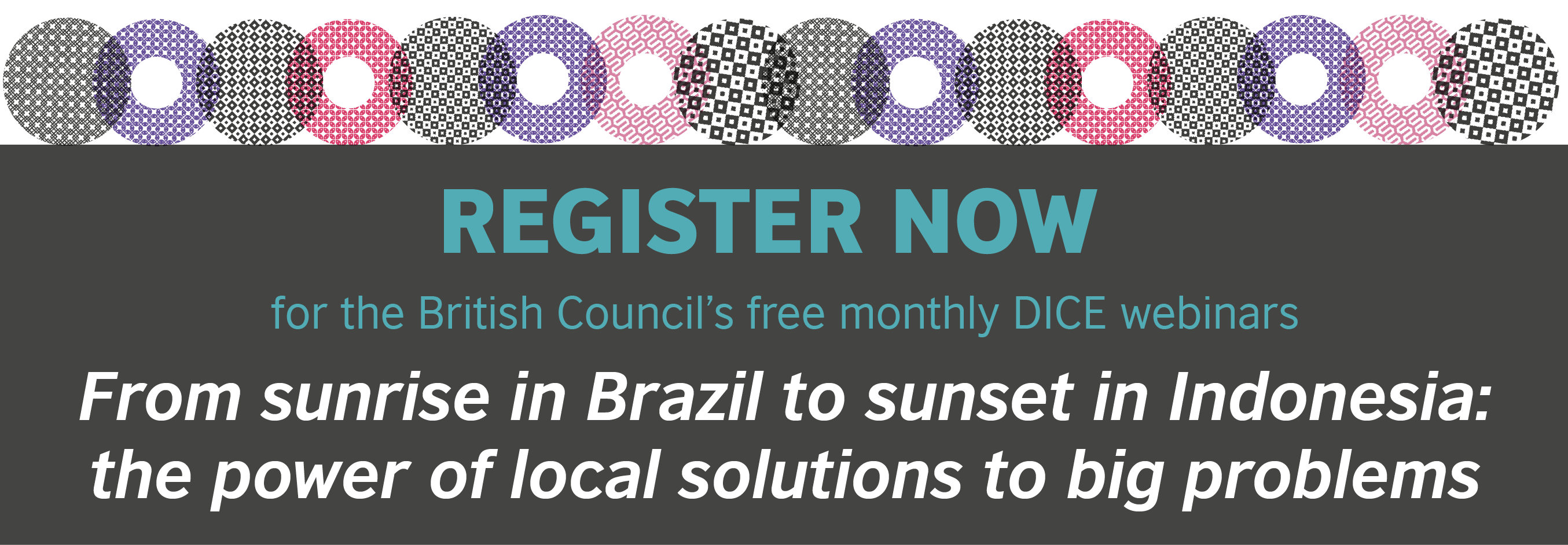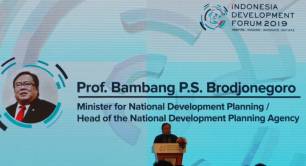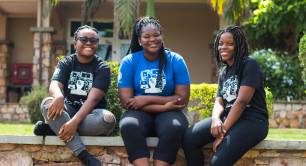Dance troupe blazes a trail for disability and inclusive enterprise in Indonesia
Taking the leap from being a small, volunteer-led group to a fully-fledged social enterprise can be daunting, but dance organisation Nalitari now has financial stability plus – importantly – greater impact.

In 2013, a small, community-led dance organisation was set up in Yogyakarta, Indonesia. Nalitari opened its doors to all members of the community, with the ethos that “everyone who wants to dance can join with us and dance with us, no matter what their background is”, in the words of co-founder Yoana Wida Kristawati.
Over time, Nalitari developed to become a space where disabled members of the community came together to socialise, develop their confidence and express their creativity through the medium of dance, embracing both contemporary and traditional Indonesian forms. It is one of many grassroots organisations in Indonesia, where exclusionary attitudes and a lack of centralised support mean that such initiatives for disabled people often depend on the compassion, free time and donations of members of the local community.
After six years of operations, Nalitari was thriving, but with a donation-based, volunteer staffed operating model, the outlook for its financial future was uncertain. So it began to seriously consider a daunting leap: from being a grassroots co-operative to becoming a social enterprise. This would provide financial sustainability, and enable it to help support its members whose disabilities meant their employment prospects were, depressingly, slim.
One of Nalitari’s choreographers discussed this with Anthony Evans, international director of Epic Arts – an inclusive arts organisation based in the UK and Cambodia, during a meeting in Jakarta. Anthony was immediately enthused. He encouraged Nalitari to apply for support through the British Council’s DICE Fund alongside Epic Arts, so together they could transform Nalitari to fulfil its potential..
Anthony had worked to develop Epic Arts from a donations-based organisation in 2012, to what it is today: a federation of thriving social enterprises, including a dance company called Epic Encounters. He recalls that he saw in Nalitari “exactly what Epic Arts had in 2012: a basic idea for a company that could have awareness-raising at its centre but could also turn over money for itself as well”.
Making the most of the social enterprise model
When their application for a grant through the British Council’s DICE Fund was successful, it enabled them to be more ambitious, so the plan evolved under Anthony’s direction. Beyond simply establishing financial sustainability, they set out to develop Nalitari as an example of what can be achieved through a social enterprise model, equipping their staff with the skills to share these methods and learnings with similar organisations addressing disability issues around Yogyakarta.
First on the agenda, though, was the nuts and bolts of business. As Anthony recalls: “The first objective was to get Nalitari to be a registered company with a bank account and a business plan.” From there, they developed a pricing structure for their performances, which was something of a cultural shift for the organisation.
Yoana says: “Before, when we were invited to perform at an event, we would never ask people how much they would pay, we were always based on donations – so it was quite scary for us.” Indeed, it was the source of some tension during the initial transition to an enterprise model. Anthony acknowledges that “it’s a challenge when you’ve not seen it happen, whereas I’ve seen it with Epic Arts, so I can say, you can maintain the integrity and the heart of your work, and make money from it.”
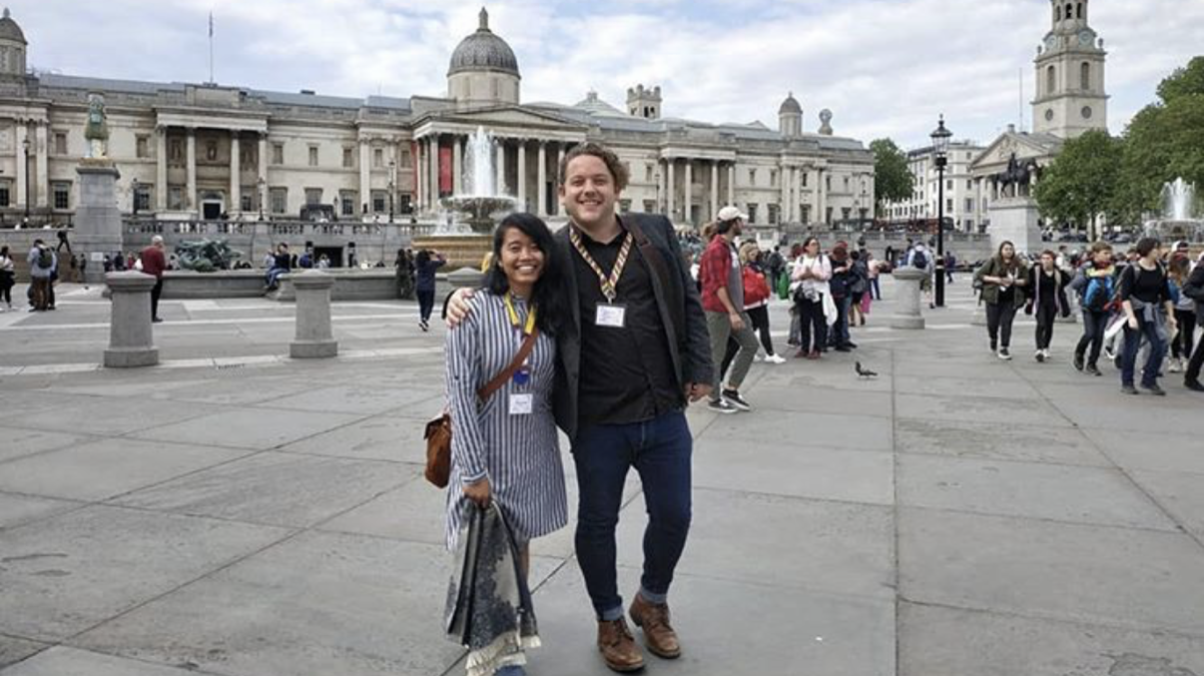 Yoana and Anthony in London during DICE week
Yoana and Anthony in London during DICE week
Diversifying Nalitari’s income stream was another key issue. And through this diversification, the cascading of enterprise skills and methods to local organisations began to take place even more quickly and organically than anticipated. They began working with an inclusive media content-creating organisation, AsKara, to produce videos, and started “mentoring them to get registered as well and develop their business plan”, says Yoana.
Similarly, they approached two organisations, an inclusive school and a group working with people with Down’s Syndrome, to work on a design and to produce merchandise. “We invited them to our dance workshops and to express what they think about the dance into the design for Nalitari merchandise, which we then sell and split the profits.”
A year on from the start of its collaboration with Epic Arts, Nalitari approached the end of the DICE-funded collaboration as an organisation with clear values, and a pathway towards financial self-sufficiency, while supporting other organisations to follow.
Yoana explains: “Before, when people asked what Nalitari is, we would have to step back and make an explanation. Now when people ask what we do we can describe it more clearly, we have clear aims, clear objectives, and clear values.”
Anthony feels Nalitari has developed beyond being a role model to the community in Yogyakarta, to a global example of what can be achieved when a large international organisation, such as the British Council, takes a chance with a small community group.
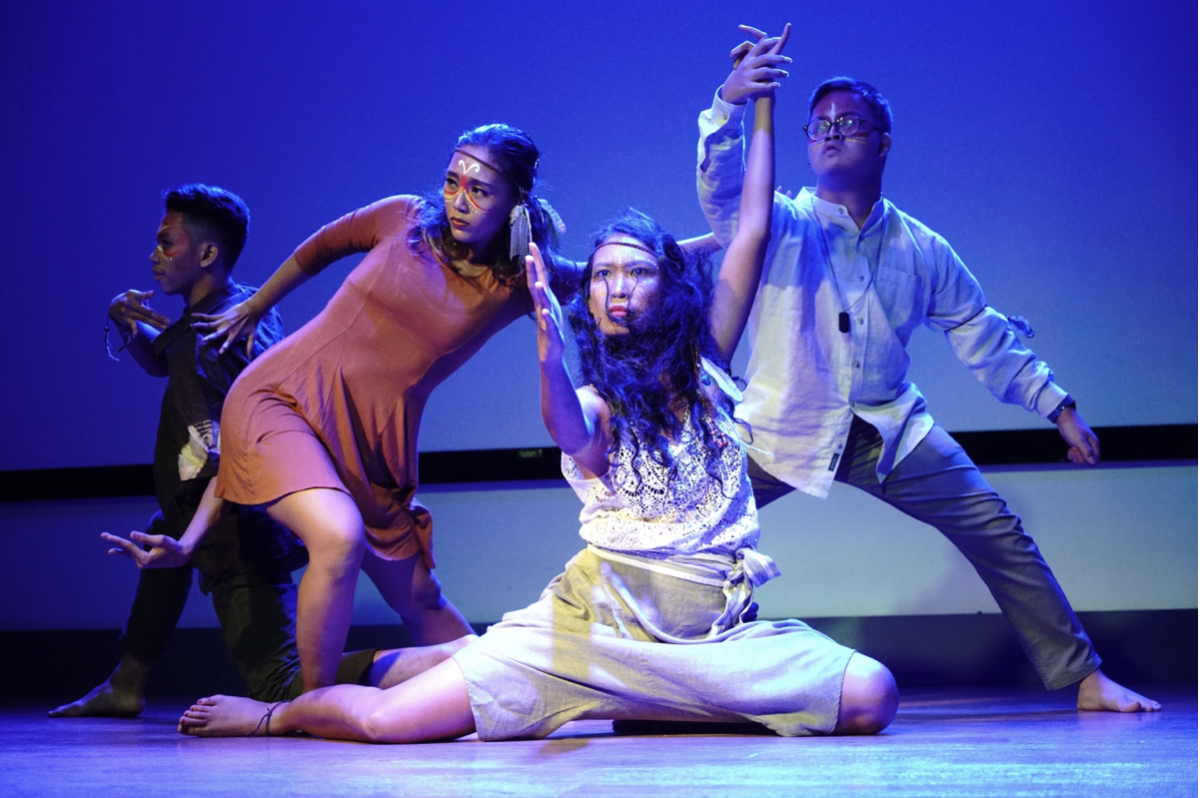
Such interactions can be fraught with complications posed by financial regulation and strict safeguarding policies, but he considers Nalitari’s success to be evidence that these risks and complexities are worth tackling.
In his words: “I think this project really demonstrates that the British Council can have an impact on some of the lesser known grassroots organisations, and, while it might not generate millions, it will be generating sustainability for all these people doing wonderful work to create a better world.”
The British Council and the DICE Collaborators (including the organisations featured in this article) invite you to join them in a series of conversations about reducing inequalities, collaborating across borders and oceans, and operating impact-focused enterprises at a time of profound change. These free, monthly live events are co-hosted by impact-focused organisations in Brazil, Egypt, Indonesia, Pakistan and South Africa and their partners in the UK, and draw on their experience of collaborating across borders to address challenges such as youth unemployment, environmental catastrophe, disability rights, and gender inequality in local communities. Find out more and register here.
The DICE Series tells the stories of collaborations which brought together enterprise development experts from the UK with specialists working in five emerging economies – Brazil, Egypt, Indonesia, Pakistan and South Africa – during 2019-20 with the aim of addressing entrenched issues of economic and social exclusion. Read more about the British Council’s DICE programme here.
Photos courtesy Nalitari and Epic Arts

